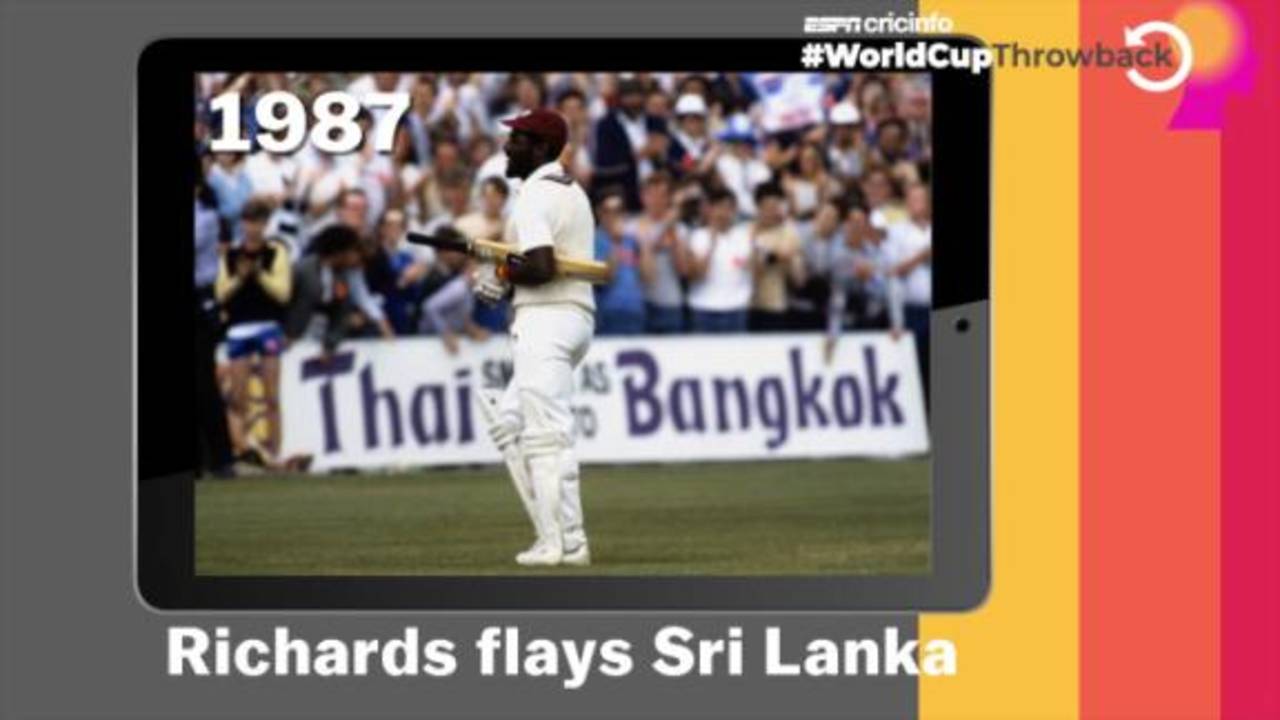King Viv flays the Sri Lankans
It was just Sri Lanka's bad luck that they ran into a West Indies side smarting from a loss to England, and Viv Richards at his vintage best
West Indies' 1987 World Cup campaign had not started brightly, with a magnificent late charge from Allan Lamb seeing England home in the opening match against them. It was just Sri Lanka's luck that they ran into a side smarting from that early reverse.
It did not start too badly for them, though, with Ravi Ratnayeke bowling Carlisle Best and then having Richie Richardson caught behind first ball. So when Viv Richards walked out, his first task was to avoid the hat-trick and stabilise the innings. He had produced a 27-run cameo in the defeat against England, but it was clear from the outset that he had much more in store for those assembled inside Karachi's National Stadium.
Richards started sedately enough, taking 62 balls for 50, but thereafter the Sri Lankan bowlers were dismissed to all parts, like puffs of cotton in front of a fan. His tenth one-day international century, unprecedented at the time, took just 97 balls, and the last 81 runs then came from just 33 deliveries.
Vinothen John had bowled a tidy spell, and Don Anurasiri had conceded just 39 from his ten overs, but every other bowler felt the full impact of the Richards onslaught. In the midst of the mayhem, Desmond Haynes' accomplished hundred was largely forgotten. The pair added 182 in 177 balls, with Richards smacking seven sixes and 16 fours in a blazing innings that spanned just 125 balls. The hapless Ashantha de Mel went for 97 from his 10, and Ratnayeke, having his dreams of hat-trick glory rudely snatched away, was thumped for 44 in two overs.
Three years earlier, Richards had savaged England to the tune of 189 at Old Trafford, and but for a mis-hit in the latter stages of this innings, he might well have become the first man to score 200 in a one-day innings. As it was, West Indies finished on 360 for 4, the highest score in a World Cup game - till Sri Lanka themselves eclipsed it nine years later.
